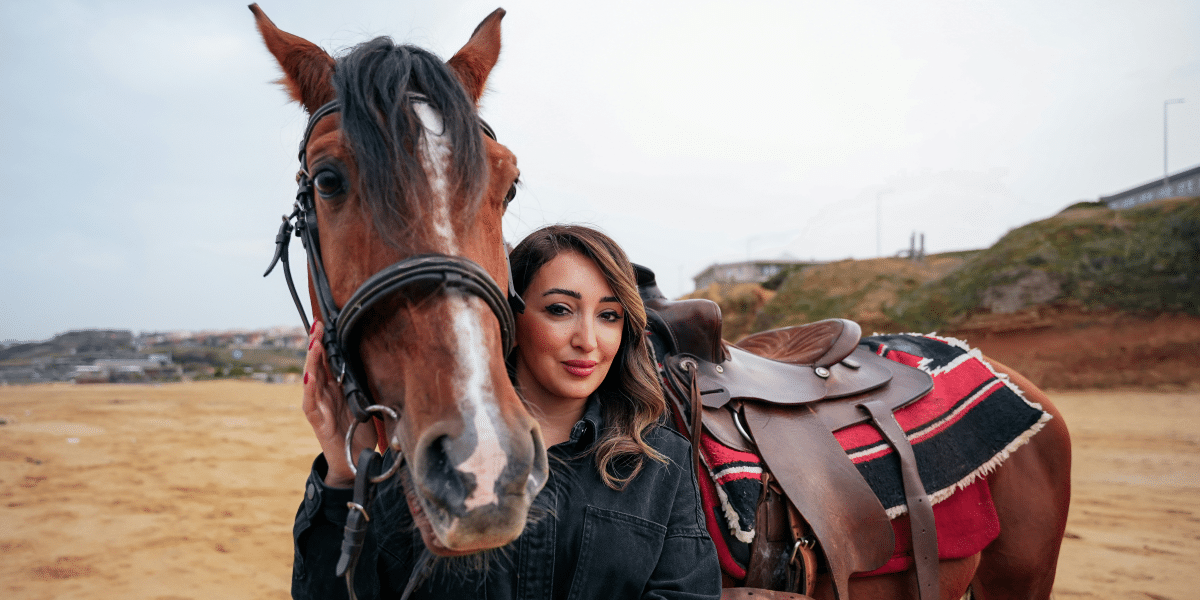Kentucky, widely recognized as the “Horse Capital of the World,” is synonymous with horse racing. This rich tradition, dating back to the 18th century, has shaped the state’s culture, economy, and identity. Known for its iconic races and renowned breeding facilities, Kentucky remains a significant player in the global horse racing scene.
The Historical Roots of Kentucky’s Horse Racing Tradition
Horse racing in Kentucky traces its origins to the late 1700s when settlers brought their enthusiasm for the sport to the region. The first recorded race occurred in 1789 in Lexington, soon becoming the heart of Kentucky’s horse racing culture. The state’s fertile land and mild climate made it an ideal location for breeding and training horses, helping establish Kentucky as a premier destination for the sport.
Creating race tracks was pivotal in the state’s rise as a horse racing hub. The Kentucky Association Track, established in 1828 in Lexington, was one of the earliest tracks, laying the groundwork for future developments. Churchill Downs, opening in 1875 in Louisville, became the epicenter of Kentucky horse racing, hosting the first Kentucky Derby, an event that would become an American sports icon.
Major Horse Racing Events: The Kentucky Derby and Beyond
The Kentucky Derby, held annually on the first Saturday in May at Churchill Downs, is Kentucky’s crown jewel of horse racing. As the first leg of the prestigious Triple Crown, it attracts the best horses, jockeys, and trainers worldwide. Covering 1.25 miles, the Derby has earned its nickname, “The Run for the Roses,” as the winner is adorned with a blanket of 554 red roses.
The Kentucky Oaks, held a day before the Derby, is another high-profile race. For three-year-old fillies, this Grade I stakes event spans 1.125 miles and draws large crowds. Alongside the Derby, the Oaks holds a special place in Kentucky’s horse racing calendar, celebrating the excellence of female racehorses.
Keeneland Race Course in Lexington, established in 1936, is another historic venue contributing to Kentucky’s racing legacy. Known for its picturesque setting, Keeneland hosts prestigious spring and fall meets and is a major auction house where some of the world’s finest Thoroughbreds are sold.
The Legacy of Horse Breeding and Training in Kentucky
Kentucky has some of the world’s most prestigious horse breeding farms. The state’s famous bluegrass region provides the perfect environment for raising Thoroughbreds. Farms like Claiborne Farm, Lane’s End, and Ashford Stud have produced numerous champions, contributing to Kentucky’s reputation as a breeding ground for racing excellence.
In addition to breeding farms, Kentucky boasts world-class training facilities that prepare horses for competitive racing. Institutions like the Thoroughbred Center in Lexington offer state-of-the-art amenities, including training tracks, swimming pools, and veterinary services. These facilities ensure that horses are properly conditioned and ready for success on the track.
Economic Impact of Horse Racing in Kentucky
Horse racing is a significant economic driver for Kentucky, employing thousands of people in various sectors. Trainers, jockeys, veterinarians, farm workers, and support staff contribute to the industry’s success. The horse racing events generate substantial revenue, as millions of visitors flock to Kentucky yearly for races like the Kentucky Derby and Keeneland meets.
The influx of tourists boosts local economies, benefiting tourism, hospitality, retail, and transportation sectors. From hotel bookings to restaurant visits and local attractions, horse racing is vital in sustaining Kentucky’s economy. The industry’s economic contributions extend beyond the tracks and farms, providing opportunities for the broader community.
The Cultural Importance of Horse Racing in Kentucky
Horse racing is more than just a sport in Kentucky—it’s a cultural cornerstone. Traditions like wearing elaborate hats at the Kentucky Derby and singing “My Old Kentucky Home” before the race have become synonymous with the state’s identity. These customs are cherished by both locals and visitors, underscoring the deep connection Kentuckians have with horse racing.
Kentucky’s horse racing community is tightly knit, with local businesses, schools, and organizations actively supporting racing events. This collective effort ensures that horse racing remains a central part of the state’s heritage, continuously evolving while maintaining its historic roots.
Challenges and Future Prospects for Kentucky’s Horse Racing Industry
While Kentucky’s horse racing industry remains vibrant, it faces challenges. Issues such as animal welfare concerns, doping scandals, and competition from other entertainment forms threaten the sport’s integrity and popularity. Addressing these issues is essential for maintaining public trust and the industry’s long-term sustainability.
Kentucky’s horse racing industry is poised for growth and innovation. Efforts are underway to improve safety standards, introduce stricter regulations, and promote ethical breeding practices. Technological advancements, including digital betting platforms and innovative training methods, are also likely to attract new fans and enhance the racing experience.
With continued investment in technology, safety, and ethical practices, the state’s iconic races can maintain their place as major attractions on the global stage. Collaborative efforts between industry stakeholders, regulatory bodies, and the public will ensure Kentucky remains at the forefront of the horse racing world. By embracing innovation and maintaining a commitment to integrity, Kentucky’s horse racing industry can evolve to meet the demands of a modern audience while preserving the rich history and tradition that make it unique.
Published by: Annie P.








